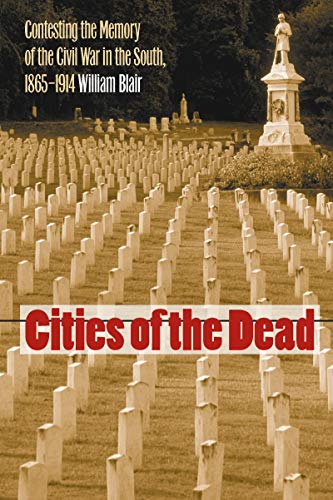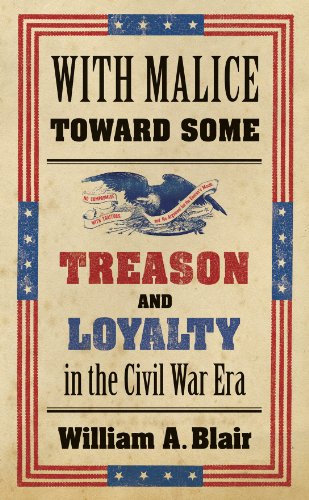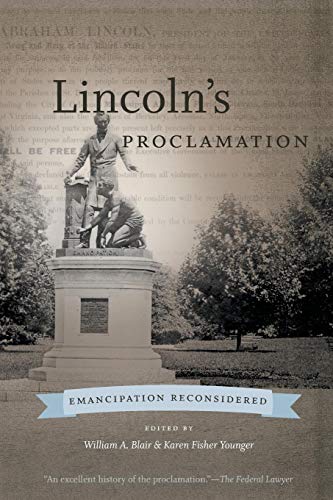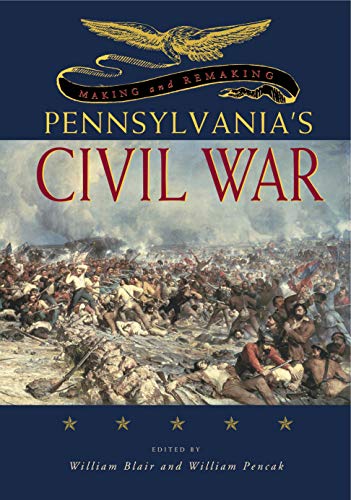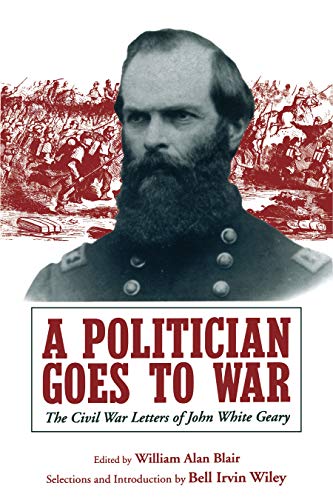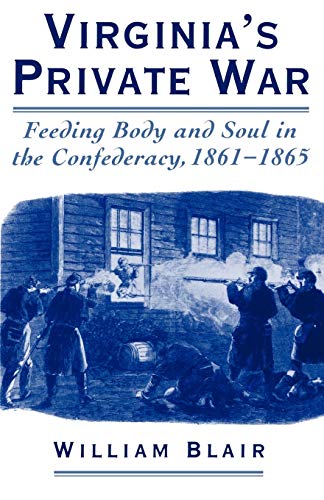Books by William Blair
Cities of the Dead: Contesting the Memory of the Civil War in the South, 1865-1914 (Civil War America)
Author(s): William A. Blair
Publication date: 2015-01-01
ISBN: 1469624273, ISBN-13: 9781469624273
Commemorations by ex-Confederates were intended at first to maintain a separate identity from the U.S. government, Blair argues, not as a vehicle for promoting sectional healing. The burial grounds of fallen heroes, known as Cities of the Dead, often became contested ground, especially for Confederate women who were opposed to Reconstruction. And until the turn of the century, African Americans used freedom celebrations to lobby for greater political power and tried to create a national holiday to recognize emancipation.
Blair's analysis shows that some festive occasions that we celebrate even today have a divisive and sometimes violent past as various groups with conflicting political agendas attempted to define the meaning of the Civil War.
With Malice toward Some: Treason and Loyalty in the Civil War Era (Littlefield History of the Civil War Era)
Author(s): William A. Blair
Publication date: 2014-06-01
ISBN: 1469614057, ISBN-13: 9781469614052
Establishing how treason was defined not just by the Lincoln administration, Congress, and the courts but also by the general public, Blair reveals the surprising implications for North and South alike.
Lincoln's Proclamation: Emancipation Reconsidered (The Steven and Janice Brose Lectures in the Civil War Era)
Author(s): William A. Blair, Karen Fisher Younger
Publication date: 2012-02-01
ISBN: 0807872202, ISBN-13: 9780807872208
The contributors are William A. Blair, Richard Carwardine, Paul Finkelman, Louis Gerteis, Steven Hahn, Stephanie McCurry, Mark E. Neely Jr., Michael Vorenberg, and Karen Fisher Younger.
Making and Remaking Pennsylvania's Civil War
Author(s): William A. Blair, William A. Pencak
Publication date: 2012-09-28
ISBN: 0271058420, ISBN-13: 9780271058429
For many people, Pennsylvania's contribution to the Civil War goes little beyond the battle of Gettysburg. The North in general has received far less attention than the Confederacy in the historiography of the Civil War—a weakness in the literature that this book will help address. The essays in this volume reconsider the impact of the Civil War on Pennsylvania and the way its memory remains alive even today.
Making and Remaking Pennsylvania's Civil War contains a wealth of new information about Pennsylvania during the war years. For instance, perhaps as many as 2,000 Pennsylvanians defected to the Confederacy to fight for the Southern cause. And during the advance of Lee's army in 1863, residents of the Gettysburg area gained a reputation throughout North and South as a stingy people who wanted to make money from the war rather than sacrifice for the Union. But the state displayed loyalty as well and commitment to the cause of freedom. Pittsburgh served as the site for one of the first public monuments in the country dedicated to African Americans. Women of the Commonwealth also contributed mightily through organizing sanitary fairs or helping in ways that belied their roles as keepers of the domestic world. And readers will learn from an African American soldier's letters how blacks helped win their own liberation.
As a whole, the ten essays contained in Making and Remaking Pennsylvania's Civil War include courage on the battlefield but reflect the current trends to understand the motivations of soldiers and the impact of war on civilians, rather than focusing solely on battles or leadership. The essays also employ interdisciplinary techniques, as well as raise gender and racial questions. They incorporate a more expansive time frame than the four years of the conflict, by looking at not only the making of the war—but also its remaking—or how a public revisits the past to suit contemporary needs.
A Politician Goes to War: The Civil War Letters of John White Geary
Author(s): William A. Blair
Publication date: 2005-08-18
ISBN: 0271026189, ISBN-13: 9780271026183
This last known work of noted historian Bell Irvin Wiley reveals the private mind of John White Geary, a Union general from Pennsylvania, through his Civil War letters to his wife, Mary. Wiley had selected these roughly 200 letters for publication, but the unfinished manuscript lay undiscovered for twelve years after the historian's death. The letters provide a rare glimpse of the two main theaters of war through the eyes of a general officer. Geary saw action at Cedar Mountain and Gettysburg in the Virginia theater and in the major campaigns in the west—from lifting the siege at Chattanooga to marching with William T. Sherman through Georgia and the Carolinas.
The fascination Geary's letters held for Wiley, the quintessential scholar of the common person, is clear: the letters of an uncommon man reveal ordinary concerns about children, money, home, and religion that linked Geary to many on both sides of the war. Geary's letters also show another side of the officer, that of the consummate politician who knew that military service provided capital for future political campaigns. Through intense self-promotion, he had fashioned a reputation that served him well in gaining respected political posts both before and after the war: he fought in the Mexican War and served as the first mayor of San Francisco and as territorial governor of Kansas during the period known as "Bloody Kansas," in addition to winning two terms as governor of Pennsylvania after the war. Ultimately, the letters of John White Geary show how a political general plied his trade. They reveal the complexities of any historical figure, for Geary had both the admirable qualities of loyalty to the Union and the less attractive need to exaggerate his abilities to enhance his career.
Virginia's Private War: Feeding Body and Soul in the Confederacy, 1861-1865
Author(s): William Blair
Publication date: 2000-09-21
ISBN: 0195140478, ISBN-13: 9780195140477
This book, however, does not portray the population as uniformly united in a Lost Cause. Virginians complained a great deal about the management of the war. Letters to the governor and to the Confederate secretary of war demonstrate how dissent escalated to dangerous proportions by the spring and summer of 1863. Women rioted in Richmond for food. Soldiers left the army without permission to check on their families and farms. Various groups vented their hatred on Virginias rich men of draft age who stayed out of the army by purchasing substitutes. Such complaints, ironically, may have prolonged the war, for some of the Confederacy's leaders responded by forcing the wealthy to shoulder more of the burden for prosecuting the war. Substitution ended, and the men who stayed home became government growers who distributed goods at reduced cost to the poor. But, as the case is made in Virginias Private War, none of these efforts could finally overcome an enemy whose unrelenting pressure strained the resources of Rebel Virginians to the breaking point.
Arguing that the state of Virginia both waged and witnessed a "rich man's fight" that has until now been downplayed or misunderstood by many if not most of our Civil War scholars, William Blair provides in these pages a detailed portrait of this conflict that is bold, original, and convincing. He draws from the microcosm of Virginia several telling conclusions about the Confederacy's rise, demise, and identity, and his study will therefore appeal to anyone with a taste for Civil War history--and Virginia's unique place in that history, especially.
Penn State University : History
- Jessamyn Abel
- Eliyana Adler
- David Atwill
- Kathleen Baldanza
- Dan Beaver
- William Blair
- Jennifer Boittin
- Erica Brindley
- Tobias Brinkmann
- Jonathan Brockopp
- Gary Cross
- Sophie De Schaepdrijver
- Greg Eghigian
- Garrett Fagan
- Lori Ginzberg
- Amy Greenberg
- Jens-Uwe Guettel
- Ronnie Hsia
- Benjamin Hudson
- Anthony Kaye
- Michael Kulikowski
- Prakash Kumar
- Daniel Letwin
- Russell Lohse
- Bryan McDonald
- Kate Merkel-Hess
- Mark Munn
- On-Cho Ng
- Maia Ramnath
- Carol Reardon
- Matthew Restall
- A. Gregg Roeber
- Anne Rose
- Nina Safran
- Kathryn Salzer
- Crystal Sanders
- Tatiana Seijas
- Gregory Smits
- Catherine Wanner
- Nan Elizabeth Woodruff
- Ran Zwigenberg
Most popular books
Link to this page using the following URL: https://www.facultybookshelf.org/author/william_blair
